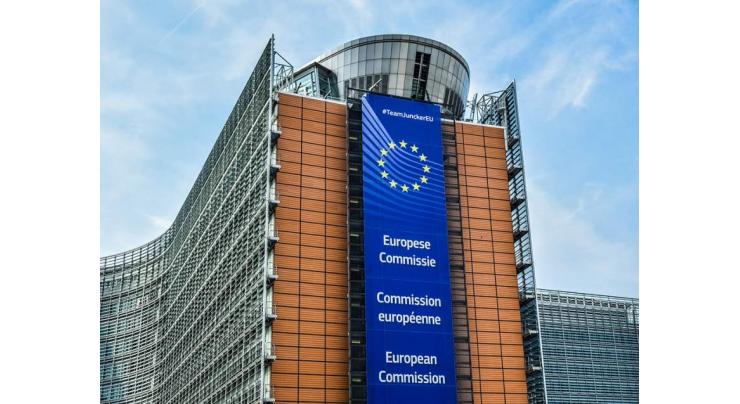
European Commission Announces 6 Quantum Computer Sites To Fight Climate Change
Mohammad Ali (@ChaudhryMAli88) Published October 04, 2022 | 09:46 PM

The European High-Performance Computing Joint Undertaking (EuroHPC JU) has announced the sites of the first six European quantum computers that will contribute to Europe's fight against climate change, the European Commission said on Tuesday
MOSCOW (UrduPoint News / Sputnik - 04th October, 2022) The European High-Performance Computing Joint Undertaking (EuroHPC JU) has announced the sites of the first six European quantum computers that will contribute to Europe's fight against climate change, the European Commission said on Tuesday.
"With pooled resources and know-how we can take leadership in a field that is essential for the future of our digital society. This contributes to our fight against climate change. And it is an essential step of the vision of deploying in Europe a world-class supercomputing and quantum computing infrastructure accessible across the EU," Margrethe Vestager, Executive-Vice President for a Europe Fit for the Digital Age digital project, said in a statement.
EuroHPC JU is a joint venture between the European Union and 17 countries, including EU member states and other European countries.
Its quantum computers will be located in the Czech Republic, Germany, Spain, France, Italy, and Poland, and will be integrated on site into existing supercomputers to form a wide network across Europe.
The project is estimated to cost over 100 million euro ($99.7 million). It will be built using only European technology, and academic researchers and industry across the continent are expected to be able to use the computers by the second half of 2023.
Quantum computing, which requires more powerful devices, relies on the powers of quantum mechanics to process calculations much faster than ordinary computers, potentially allowing much more complicated problems to be solved.
Thus, EuroHPC JU expects these computers to solve complex logistic and scheduling problems to help companies save time and fuel. and to allow the development and testing in a virtual environment of catalytic converters for cars, solar cells, or room-temperature superconductors that could store energy indefinitely.
Related Topics
Recent Stories

SC orders end of encroachments in Karachi

Nazish Jahangir denies viral screenshots, calls them fake

Govt likely to hike electricity price once again

Bismah Maroof announces immediate retirement from international cricket

Malala expresses unwavering support for Gaza people

Selection committee dissolved over Pakistan women cricket team's poor performanc ..

Punjab CM Maryam Nawaz in police uniform at Chung police center

Currency Rate In Pakistan - Dollar, Euro, Pound, Riyal Rates On 25 April 2024

Today Gold Rate in Pakistan 25 April 2024

Mired in crisis, Boeing reports another loss

Session Awarding Ceremony 2024 held at Cadet College Muzaffarabad

Austrian ski great Hirscher to make comeback under Dutch flag
More Stories From World
-
Ahead of feared Rafah invasion, Palestinians mourn bombardment dead
4 seconds ago -
155 killed in Tanzania as heavy rains cause floods, landslides: PM
15 seconds ago -
Car giants vie for EV crown at Beijing's Auto China show
26 seconds ago -
Chinese defense minister to attend SCO meeting in Kazakhstan
10 minutes ago -
China-Bangladesh to hold joint military exercise in May
21 minutes ago -
Residents protest as Venice launches five-euro entry fee
30 minutes ago
-
Portugal marks 50 years of democracy with far right on rise
50 minutes ago -
Pakistan envoy visits TomatoWorld in Netherlands
60 minutes ago -
Chinese defense minister to attend SCO meeting in Kazakhstan
1 hour ago -
China, Pakistan should engage in greater counter-terrorism cooperation to combat hostile forces: Khu ..
1 hour ago -
Scottish leader scraps coalition deal with Greens
1 hour ago -
Macron, in key speech, warns that Europe 'is mortal'
1 hour ago